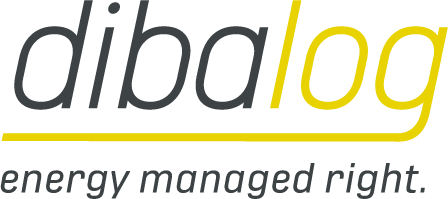Name and address of the controller
The controller for the purposes of the General Data Protection Regulation, other data protection laws applicable in Member states of the European Union and other provisions related to data protection is:
dibalog Betriebs- und Energiemanagement Systeme GmbH
Carl-Benz-Straße 1
Sinsheim
Germany
Tel.: +49 7261 659940
Email: info@dibalog.de
Website: www.dibalog.de
b)Right to information
- the purposes of the processing;
- the categories of personal data being processed;
- the recipients or categories of recipients to whom the personal data have been or will be disclosed, in particular recipients in third countries or international organizations;
- if possible, the envisaged period for which the personal data will be stored, or, if not possible, the criteria used to determine that period;
- the existence of the right to request from the controller rectification or erasure of personal data or restriction of processing of personal data concerning the data subject or to object to such processing; the existence of the right to lodge a complaint with a supervisory authority;
- if the personal data are not collected from the data subject: Any available information as to the source of the data;
- the existence of automated decision-making, including profiling, referred to in Article 22(1) and (4) of the GDPR and, at least in those cases, meaningful information about the logic involved, as well as the significance and envisaged consequences of such processing for the data subject
.
c) Right to rectification
Each data subject shall have the right granted by the European legislator to obtain from the controller without undue delay the rectification of inaccurate personal data concerning him or her. Furthermore, taking into account the purposes of the processing, the data subject shall have the right to have incomplete personal data completed, including by means of providing a supplementary statement.
d) Right to erasure (right to be forgotten)
Each data subject shall have the right granted by the European legislator to obtain from the controller the erasure of personal data concerning him or her without undue delay, and the controller shall have the obligation to erase personal data without undue delay where one of the following grounds applies, as long as the processing is not necessary: the personal data are no longer necessary in relation to the purposes for which they were collected or otherwise processed.
The data subject withdraws consent on which the processing is based according to point (a) of Article 6(1) of the GDPR, or point (a) of Article 9(2) of the GDPR, and where there is no other legal ground for the processing.
The data subject objects to the processing pursuant to Article 21(1) GDPR and there are no overriding legitimate grounds for the processing, or the data subject objects to the processing pursuant to Article 21(2) GDPR.
The personal data have been processed unlawfully
.
The personal data have to be erased for compliance with a legal obligation in Union or Member State law to which the controller is subject.
The personal data have been collected in relation to the offer of information society services referred to in Art. 8 (1) GDPR.
e) Right to restriction of processing
Each data subject shall have the right granted by the European legislator to obtain from the controller restriction of processing where one of the following applies:
The accuracy of the personal data is contested by the data subject, for a period enabling the controller to verify the accuracy of the personal data
.
The processing is unlawful and the data subject opposes the erasure of the personal data and requests the restriction of their use instead.
The controller no longer needs the personal data for the purposes of the processing, but they are required by the data subject for the establishment, exercise or defense of legal claims.
The data subject has objected to processing pursuant to Article 21(1) of the GDPR pending the verification whether the legitimate grounds of the controller override those of the data subject.
f) Right to data portability
Each data subject shall have the right granted by the European legislator to receive the personal data concerning him or her, which he or she has provided to a controller, in a structured, commonly used and machine-readable format. He or she also has the right to transmit those data to another controller without hindrance from the controller to which the personal data have been provided, as long as the processing is based on consent pursuant to point (a) of Article 6(1) of the GDPR or point (a) of Article 9(2) of the GDPR, or on a contract pursuant to point (b) of Article 6(1) of the GDPR, and the processing is carried out by automated means, as long as the processing is not necessary for the performance of a task carried out in the public interest or in the exercise of official authority vested in the controller.
Furthermore, in exercising his or her right to data portability pursuant to Article 20(1) of the GDPR, the data subject shall have the right to have personal data transmitted directly from one controller to another, where technically feasible and when doing so does not adversely affect the rights and freedoms of others.
g) Right to object
Each data subject shall have the right granted by the European legislator to object, on grounds relating to his or her particular situation, at any time, to processing of personal data concerning him or her, which is based on point (e) or (f) of Article 6(1) of the GDPR. This also applies to profiling based on these provisions.In the event of an objection, dibalog GmbH will no longer process the personal data unless we can demonstrate compelling legitimate grounds for the processing which override the interests, rights and freedoms of the data subject or for the establishment, exercise or defense of legal claims.
If the dibalog GmbH processes personal data for direct marketing purposes, the data subject shall have the right to object at any time to processing of personal data concerning him or her for such marketing. This also applies to profiling to the extent that it is related to such direct marketing. If the data subject objects to the dibalog GmbH to the processing for direct marketing purposes, the dibalog GmbH will no longer process the personal data for these purposes.
In addition, the data subject has the right, on grounds relating to his or her particular situation, to object to processing of personal data concerning him or her by the dibalog GmbH for scientific or historical research purposes, or for statistical purposes pursuant to Article 89(1) of the GDPR, unless the processing is necessary for the performance of a task carried out for reasons of public interest.
h) Automated decisions in individual cases including profiling
Each data subject shall have the right granted by the European legislator not to be subject to a decision based solely on automated processing, including profiling, which produces legal effects concerning him or her, or similarly significantly affects him or her, provided that the decision (1) is not necessary for the conclusion or performance of a contract between the data subject and the controller, or (2) is authorized by Union or Member State law to which the controller is subject and which also lays down suitable measures to safeguard the data subject's rights and freedoms and legitimate interests, or (3) is based on the data subject's explicit consent.
If the decision (1) is necessary for entering into, or the performance of, a contract between the data subject and a data controller, or (2) it is based on the data subject's explicit consent, the dibalog GmbH shall implement suitable measures to safeguard the data subject's rights and freedoms and legitimate interests, at least the right to obtain human intervention on the part of the controller, to express his or her point of view and contest the decision.
Data protection for applications and in the application process
The controller collects and processes the personal data of applicants for the purpose of handling the application process.
The processing may also be carried out electronically. This is particularly the case if an applicant submits relevant application documents to the controller electronically, for example by email or via a web form on the website.
Legal basis of the processing
Art. 6 I lit. a GDPR serves our company as the legal basis for processing operations for which we obtain consent for a specific processing purpose. If the processing of personal data is necessary for the performance of a contract to which the data subject is party, as is the case, for example, when processing operations are necessary for the supply of goods or to provide any other service or consideration, the processing is based on Art. 6 I lit. b GDPR. The same applies to such processing operations that are necessary to carry out pre-contractual measures, for example in cases of inquiries about our products or services. If our company is subject to a legal obligation which requires the processing of personal data, such as for the fulfillment of tax obligations, the processing is based on Art. 6 I lit. c GDPR. In rare cases, the processing of personal data may become necessary in order to protect the vital interests of the data subject or another natural person. This would be the case, for example, if a visitor were injured in our company and their name, age, health insurance data or other vital information would have to be passed on to a doctor, hospital or other third party. The processing would then be based on Art. 6 I lit. d GDPR. Ultimately, processing operations could be based on Art. 6 I lit. f GDPR. This legal basis is used for processing operations which are not covered by any of the abovementioned legal grounds, if processing is necessary for the purposes of the legitimate interests pursued by our company or by a third party, except where such interests are overridden by the interests or fundamental rights and freedoms of the data subject.
Existence of automated decision-making
As a responsible company, we do not use automatic decision-making or profiling.
This Privacy Policy has been generated by the Privacy Policy Generator of the DGD - Your External DPO that was developed in cooperation with German Lawyers from WILDE BEUGER SOLMECKE, Cologne, External Data Protection Officer Berlin, in cooperation with theCologne-based IT and data protection lawyer Christian Solmecke.
Privacy policy - Matomo:
We use the web analysis tool "Matomo" for the needs-based design of our websites. Matomo creates user profiles on the basis of pseudonyms. For this purpose, permanent cookies are stored on your end device and read by us. In this way, we are able to recognize and count returning visitors. Data entered in forms is not recorded and is not visible at any time.
Data processing is based on your consent in accordance with Section 25 (1) TDDDG, Art. 6 (1) (a) GDPR, provided you have given your consent via our banner. You can withdraw your consent at any time. Please make the appropriate settings via our banner.Further information on Matomo's terms of use and data protection regulations can be found at matomo.org/privacy/
Meta Pixel
a. Nature and purpose of processing: The Meta Pixel is a tool provided by Meta that is used to analyze and understand user interactions on our website. This technology uses cookies and web storage to collect information about how you use our website. The aim is to optimize advertisements and provide targeted content that matches your interests. The data collected helps us to measure and improve the effectiveness of our advertising campaigns.
b. Legal basis for processing: The processing of your data by the meta pixel is based on your consent in accordance with Art. 6 para. 1 lit. a GDPR, which you have given by actively clicking on the consent buttons on our website.
c. Data categories: The data categories collected by the meta pixel include your IP address, device information, usage patterns, click behavior and websites visited.
d. Recipients: The data collected by the Meta Pixel is transmitted to Meta and processed by Meta to analyze and improve its advertising service. Areas of our company related to marketing management may also receive access to aggregated data reports.
e. Storage periods: The data will be stored for as long as necessary to fulfill the purposes described or until you withdraw your consent. The specific duration depends on the structure of your advertising settings and profiles at Meta.
f. Legal/contractual requirement: The provision of your data by Meta Pixel is not required by law. However, it is necessary in order to provide personalized advertising content and to analyze the effectiveness of advertising campaigns.
g. Third country transfer: Since Meta is based in the USA, your data is transferred to a third country that is considered unsafe under the GDPR. This means that an adequate standard of data protection cannot be guaranteed when data is transferred to the USA.
h. Withdrawal of consent: You have the right to withdraw your consent to the processing of your data by Meta Pixel at any time, without affecting the lawfulness of processing based on consent before its withdrawal.


